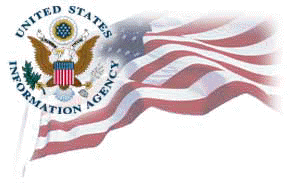
The Cold War and the United States Information Agency
On Tuesday, October 21st The Center on Public Diplomacy hosted an exciting roundtable book discussion with CPD faculty fellow Nicholas Cull about his most recent critically acclaimed publication, "The Cold War and the United States Information Agency: American Propaganda and Public Diplomacy, 1945-1989".
Praised as "the definitive history of US public diplomacy" by Kristen M. Lord, Foreign Policy Fellow at the Brookings Institution's Saban Center for Middle East Policy, Cull hopes that this book will, "fill in some of the blanks in the history of U.S. public diplomacy and help prevent the repetition of some of the mistakes of the past.” He continues, “my research shows that public diplomacy is a crucial element of foreign policy, but America’s approach has been consistently flawed by in-fighting, a lack of connection to policymaking and a marked aversion to listening.” Basing his approach on more than a hundred interviews and scores of newly declassified documents, Cull details the need for a new, concerted effort in the field of public diplomacy if the United States is to be a continuing player on the international diplomatic stage.
From Cambridge University Press:
Published at a time when the U.S. government’s public diplomacy is in crisis, this book provides an exhaustive account of how it used to be done. The United States Information Agency was created in 1953 to “tell America’s story to the world” and, by engaging with the world through international information, broadcasting, culture and exchange programs, became an essential element of American foreign policy during the Cold War. Based on newly declassified archives and more than 100 interviews with veterans of public diplomacy, from the Truman administration to the fall of the Berlin Wall, Nicholas J. Cull relates both the achievements and the endemic flaws of American public diplomacy in this period. Major topics include the process by which the Truman and Eisenhower administrations built a massive overseas propaganda operation; the struggle of the Voice of America radio to base its output on journalistic truth; the challenge of presenting Civil Rights, the Vietnam War, and Watergate to the world; and the climactic confrontation with the Soviet Union in the 1980s. This study offers remarkable and new insights into the Cold War era.
Nicholas Cull's comprehensive history of USIA begins by clarifying what is meant by "public diplomacy." This is a great service, because since 9/11 every committee, think tank, advisory board and broom closet in Washington has published a report on the topic, and while some are less eye-glazing than others, none cuts through the semantic muddle as deftly as Mr. Cull.
To read the book review, click here.
Visit CPD's Online Library
Explore CPD's vast online database featuring the latest books, articles, speeches and information on international organizations dedicated to public diplomacy.







